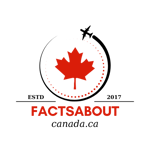Canada’s Bilingual Languages: English and French
The coexistence of English and French is woven into the very fabric of Canada. This bilingualism stems from the country’s complex history, shaped by both British and French colonial influences that have left an enduring legacy.
Historical Roots
- French Explorers and Settlers: French exploration and settlement in Canada began in the 16th century, establishing a strong French-speaking presence in regions like Quebec and Atlantic Canada.
- British Conquest and Influence: The British victory over France in 1763 led to English becoming increasingly dominant across Canada.
- Linguistic Tensions: Historically, the relationship between English and French speakers in Canada has often been fraught with tension, with French Canadians striving to preserve their language and culture.
The Official Languages Act of 1969: A Milestone
- A Turning Point: This landmark legislation declared English and French as Canada’s two official languages, ensuring equal status in federal institutions and services.
- Symbolic Importance: The Act recognized the fundamental contributions of both languages to Canadian history and identity.

Bilingualism Today: A Diverse Landscape
Official bilingualism doesn’t mean everyone in Canada speaks both English and French. The reality is a fascinating mosaic:
- New Brunswick: Canada’s only officially bilingual province.
- Quebec: Predominantly French-speaking, with laws protecting French as the primary language of everyday life.
- Bilingual Belt: Areas in Ontario and other provinces where both languages have a significant presence.
- Linguistic Minorities: French-speaking communities exist outside Quebec, and English-speakers outside of predominantly English provinces, each striving to maintain their linguistic heritage.
Benefits of Bilingualism
- Cultural Enrichment: Two official languages open doors to understanding diverse perspectives, histories, and artistic expressions.
- Cognitive Advantages: Studies suggest bilingualism can enhance problem-solving, creativity, and cognitive flexibility.
- Economic Opportunities: Fluency in both languages can be an asset in Canada’s workforce and in international interactions.
- Global Connection: English and French are widely spoken worldwide, providing connections to other cultures and communities.
Challenges and Opportunities
- Geographic Disparity: Bilingualism is unevenly distributed across Canada, leading to different experiences based on location.
- Resources and Access: Providing second-language education, translation services, and bilingual opportunities requires ongoing investment.
- Continuing Efforts: Promoting bilingualism across Canada means working towards greater understanding and respect between English and French-speaking communities.
Canada’s Unique Identity
Official bilingualism is a core part of what makes Canada unique. It reflects a complex history, a commitment to linguistic diversity, and a willingness to embrace the challenges and opportunities that come with having two official languages.


Dan -
I speak both English and French, and I agree that being bilingual is definitely an advantage in both Ottawa and Quebec.
Ricardo -
I speak Spanish and English. This counts as bilingual as well. 😆